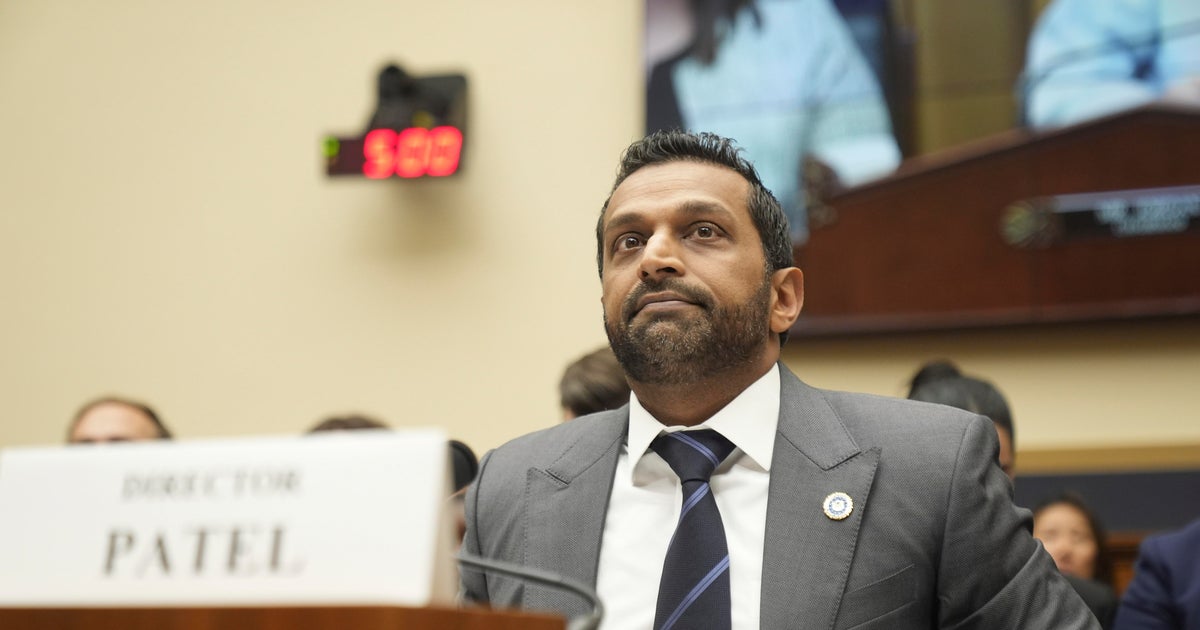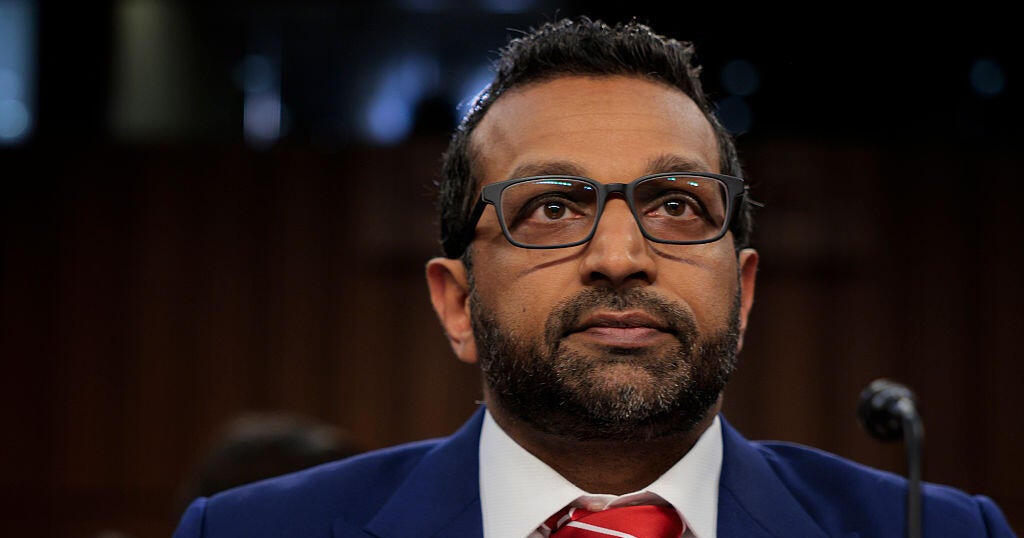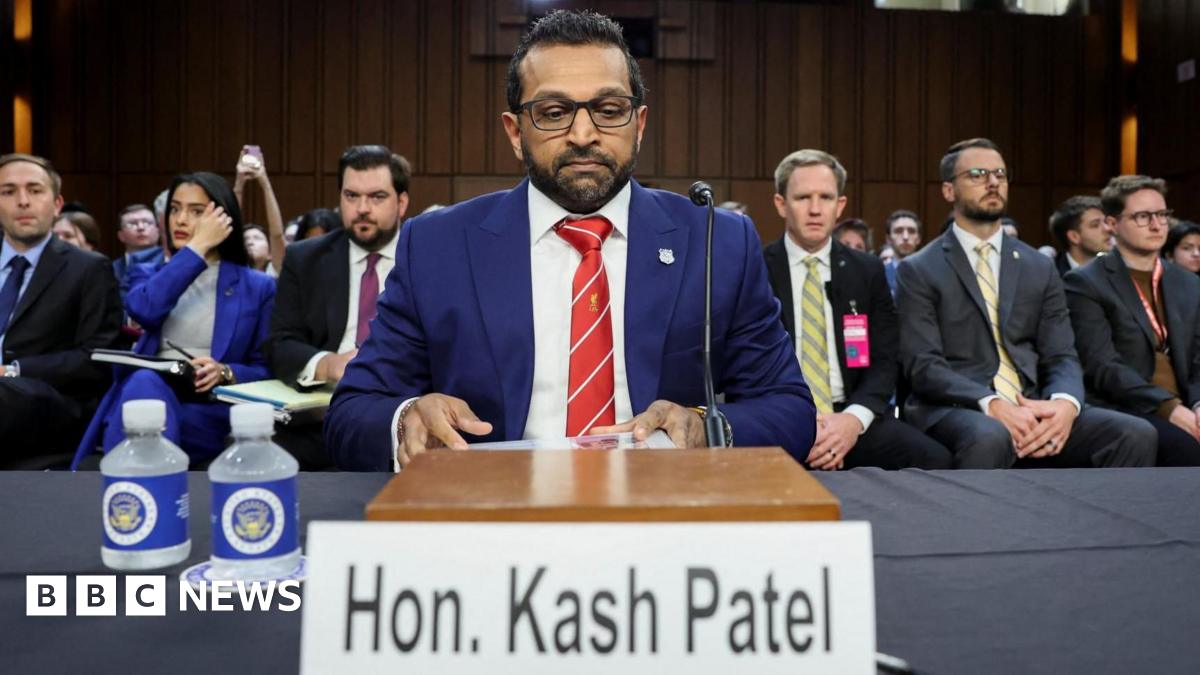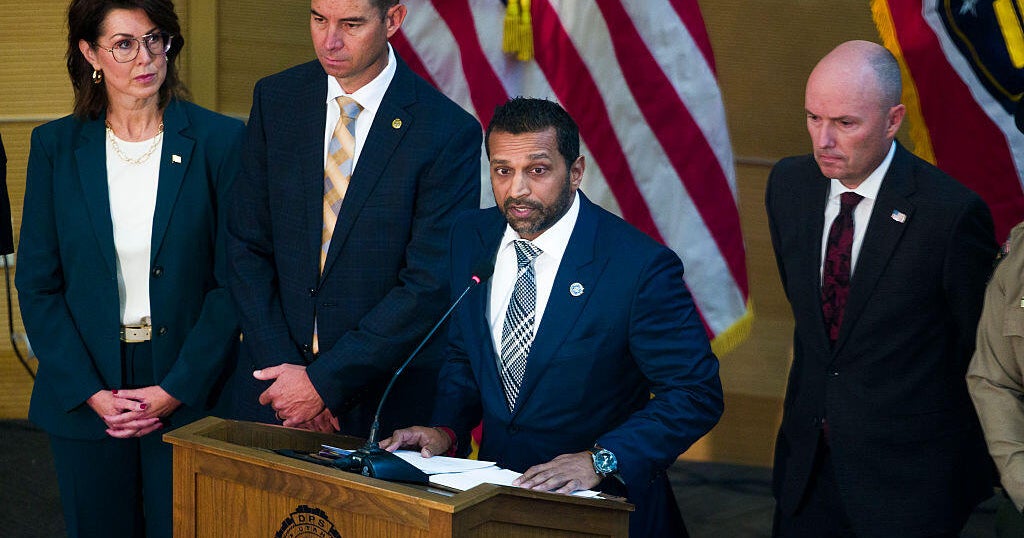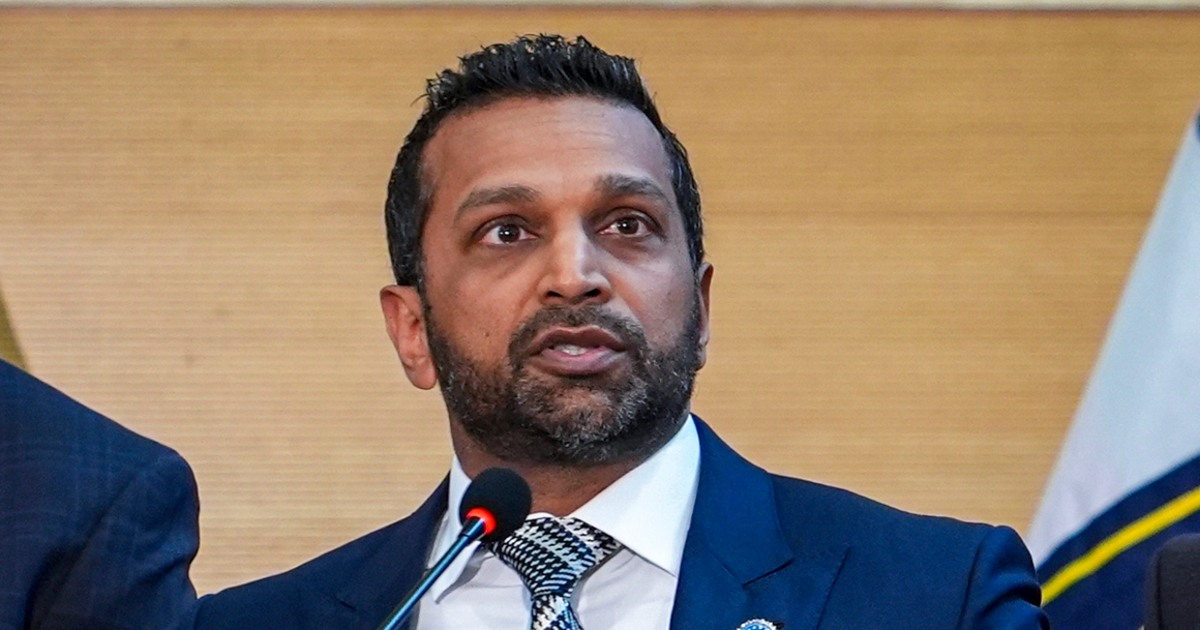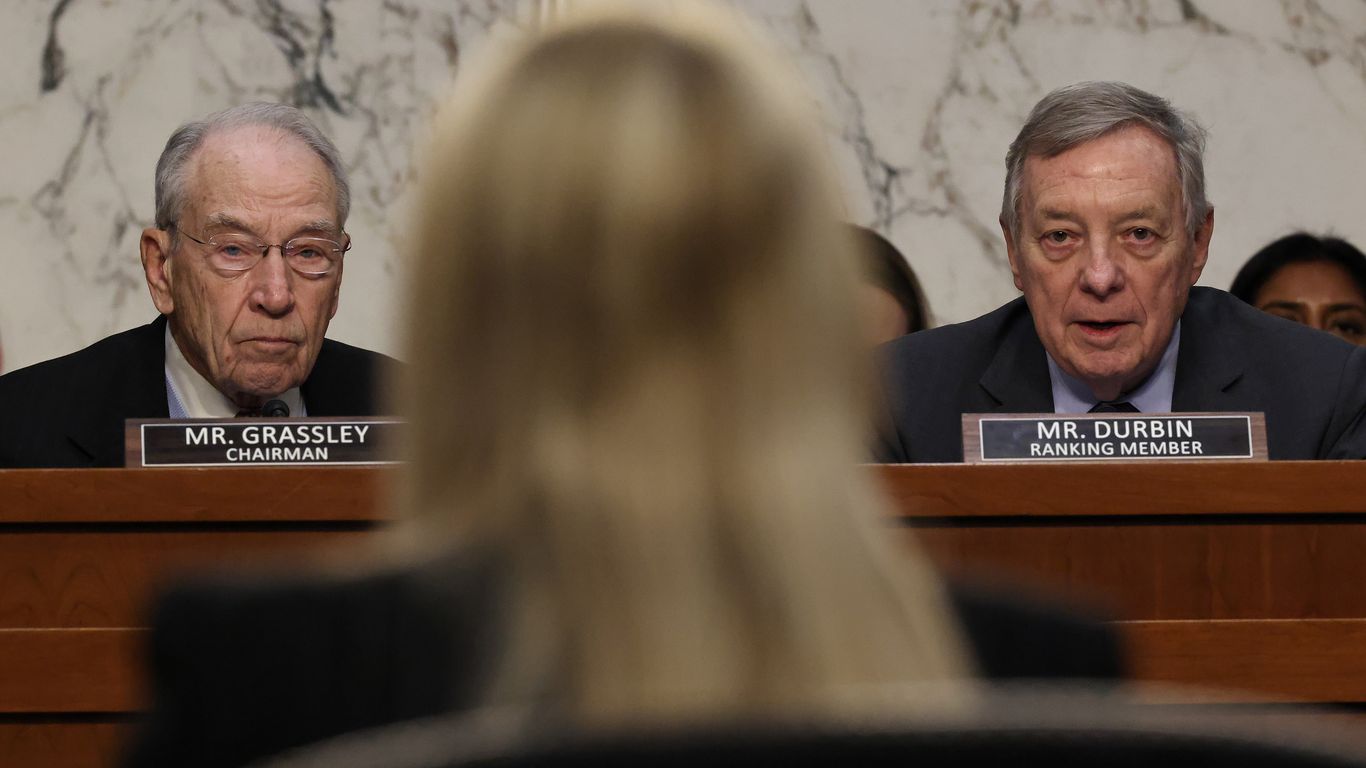Federal Prosecutors Prepare to Seek Indictment Against Former FBI Director James B. Comey
#fbi #james comey #indictment #false statements #investigation

Introduction
Va. federal prosecutors are reportedly preparing to seek an indictment against James B. Comey, the former director of the FBI. Sources familiar with the matter say the investigation centers on Comey's testimony before the Senate Judiciary Committee on September 30, 2020. This development is the latest in a series of legal troubles for Comey, who has been a target of criticism and controversy since his involvement in the 2016 U.S. presidential election.
Key Details
The potential indictment stems from allegations that Comey made false statements during his testimony, specifically regarding the handling of classified information and the investigation into Hillary Clinton's use of a private email server. The investigation, led by federal prosecutors in Virginia, has been ongoing for several months and could result in criminal charges against Comey. This news has sparked debate and speculation, with some questioning the motives behind the investigation and others applauding the potential consequences for Comey's actions.
Impact
If the indictment is pursued and successful, it could have significant implications for the credibility and legacy of James B. Comey. As a highly respected figure in law enforcement, any criminal charges against him would be a major blow to his reputation and could potentially damage public trust in the FBI. This case also highlights the importance of honesty and integrity in government officials, and the consequences that can result from making false statements under oath. As the investigation continues, the outcome
About the People Mentioned
James B. Comey
James B. Comey is an American lawyer and former Director of the Federal Bureau of Investigation (FBI). Born on December 14, 1960, Comey graduated from the College of William & Mary and the University of Chicago Law School. He began his career as an assistant United States attorney in the Southern District of New York and the Eastern District of Virginia, handling notable cases such as the Khobar Towers terrorist bombing and high-profile fraud cases[3]. Comey served as the U.S. Attorney for the Southern District of New York from 2002 to 2003, where he prosecuted several major fraud cases. He then became the Deputy Attorney General under President George W. Bush until 2005. After leaving government, Comey worked as a senior vice president and general counsel at Lockheed Martin and later as general counsel at Bridgewater Associates[1][2]. In 2013, Comey was appointed as the seventh Director of the FBI by President Barack Obama, a position he held until his termination by President Donald Trump in May 2017. During his tenure, Comey was involved in several high-profile investigations, including the Hillary Clinton email controversy and the Russia investigation related to the Trump campaign[1][2]. Comey has been involved in public life since his departure from the FBI. He has testified before Congress regarding his interactions with President Trump and has written several books, including "A Higher Loyalty" and "Saving Justice," which explore themes of leadership and justice[4][5]. Additionally, Comey has ventured into fiction writing with a series of novels. Despite his departure from government, Comey remains a figure of interest in American politics due to his past roles and public commentary[5].
About the Organizations Mentioned
FBI
The Federal Bureau of Investigation (FBI) is a premier law enforcement agency in the United States, renowned for its role in protecting the nation from domestic and international threats. Founded on July 26, 1908, as the Bureau of Investigation, it was initially tasked with addressing land fraud and corporate malfeasance under President Theodore Roosevelt[1][2]. Over time, its mandate expanded significantly, particularly with the passage of the Mann Act in 1910, which allowed federal jurisdiction over certain moral offenses[1][4]. ### History and Evolution The FBI underwent significant transformation under J. Edgar Hoover, who became its director in 1924. Hoover implemented strict hiring standards and enhanced operational capabilities, transforming the agency into a robust investigative force[1][4]. The FBI's name was officially changed to the Federal Bureau of Investigation in 1935[5][6]. Throughout its history, the FBI has faced challenges, including concerns about potential abuses of power, but it has consistently demonstrated its value in national security and law enforcement[3][4]. ### Key Achievements The FBI has been instrumental in combating various crimes, including white-collar offenses, civil rights violations, and national security threats. Notable achievements include its role in enforcing the Espionage Act during World War I and its investigations into organized crime throughout the 20th century[2][4]. ### Current Status Today, the FBI is a sophisticated agency with over 37,100 employees, including special agents and professionals in various fields such as intelligence analysis and cybersecurity[5]. It operates in 55 field offices across the U.S. and has an international presence in 81 nations[5]. The FBI continues to evolve, addressing emerging threats like cybercrime and terrorism while maintaining its commitment to justice and integrity. ### Notable Aspects The FBI is known for its rigorous training programs at the FBI Academy in Quantico, Virginia, and its advanced forensic capabilities at the FBI Laboratory. Its work in business and technology includes
Senate Judiciary Committee
The **United States Senate Committee on the Judiciary** is a key standing committee in the U.S. Senate, established in 1816, making it one of the oldest and most influential committees in Congress[2][4][5]. Its primary role encompasses oversight of the federal judiciary and Department of Justice (DOJ), consideration of judicial and executive nominations, and review of legislation related to constitutional, criminal, civil rights, antitrust, immigration, intellectual property, and internet privacy laws[2][4][8]. The committee is responsible for holding confirmation hearings and investigating the backgrounds of presidential nominees to the Supreme Court, federal courts of appeals, district courts, and certain executive branch positions such as the Attorney General and FBI Director[3][2]. It plays a crucial gatekeeping role, vetting nominees before reporting them to the full Senate, which votes on confirmation[2][3]. This process has become more politically charged over time, reflecting the committee's importance in shaping the judiciary[3]. Historically, the Judiciary Committee has been instrumental in administering the judicial system of the United States, reforming judicial procedures, and protecting constitutional rights such as due process and civil liberties[1][4]. It also oversees antitrust enforcement and consumer protections, guarding against monopolies and promoting fair competition[1]. The committee's legislative jurisdiction extends broadly, covering constitutional amendments, federal criminal law, human rights, and other critical legal areas[2][4][8]. Key aspects include its subcommittees specializing in areas like antitrust, immigration, crime, federal courts, intellectual property, privacy, and constitutional issues, which enable detailed oversight and legislative work[7]. The committee has a membership of 22 senators and is a central platform for public discussion on social and constitutional issues[2][7]. In the context of business and technology, the Judiciary Committee’s oversight of antitrust laws and intellectual property, along with its influence on privacy and internet legislation, makes it a pivotal actor in regulating how technology companies

